
Poor eyesight is generally associated with genetics or aging, but many experts believe and also suggest that damage to one’s eyesight can be prevented with the help of everyday foods. Most of us think about carrots to keep our vision in good shape, but in fact there are a number of other foods which are known to reduce the risk of vision or sight loss. A research conducted by the National Eye Institute, shows that there are various nutrients which are essential in preventing our eyes. The most significant foods that are essential in preventing macular degeneration are the foods that are rich in antioxidants like lutein and zeaxanthin, vitamin E, vitamin C, vitamin A, niacin, beta carotene, omega 3 fats and minerals like zinc and sulfur.
The food that we consume directly affects our health, both physically and psychologically. As we know that some foods strengthen our bones, some can even enhance our moods and other can make us healthier. The same way there are many foods with specific nutrients that can improve our eyesight. When you add such foods in the daily diet combined with exercises, they definitely can work wonders for your eyesight and improve the vision. Here are some foods that are known to improve and maintain good vision. People who are allergic to nuts, should avoid consuming sea food. The foods suggested below should always be consumed in moderated quantities or as prescribed by the physician to avoid any health hazards.
Wild salmon and cold water fish such as sardines, mackerel and tuna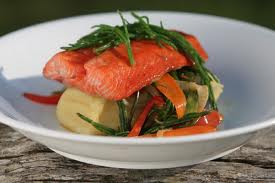
Salmon is extremely rich in omega 3 fatty acids and vitamins D and A. All these dietary essentials in salmon together can boost brain power and also improve vision and eye health. Research shows that regular intake of foods rich in omega 3 fatty acids, aid in protecting the tiny blood vessels in our eyes. Other cold water fish like sardines, tuna and mackerel are an excellent source of essential DHA. DHA is known to provide all the important structural support to the cell membranes. They are usually prescribed for various eye problems such as dry eyes, as part of treatment for macular degeneration and even for sight prevention. Fish serving of 4-5 ounces at least 2-3 days in a week is suggested.
Garlic, shallots, onion and caper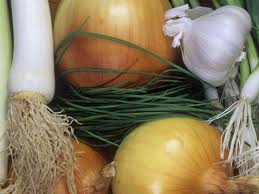
Garlic works wonders if you suffer from poor blood circulation. Regular consumption of garlic not only enhances blood flow but also boosts the immune system. Garlic, onions, shallots and capers are a good source of sulfur which is vital in keeping the lenses of the eyes resilient and strong. Sulfur is essential in producing an antioxidant called glutathione which is vital for healthy lens of the eyes. Generally fresh garlic is more effective than any cooked varieties. Garlic can easily be added to almost any entrees for a more healthy and appetizing dish.
Dark chocolate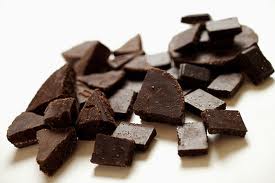
Dark chocolate is widely known for its tremendous antioxidant benefits. It contains flavanoids that are essential for a healthy heart. Flavanoids also help in protecting the blood vessels in our eyes and keep the lens and cornea strong and healthy as you age. A more pure form of dark chocolate is considered to be the most effective. Always look for dark chocolate bars that contain more than 60% of coco extracts for maximum benefits.
Leafy green vegetables and fruits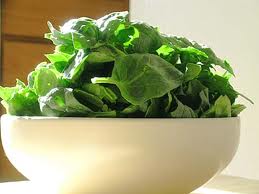
We all know the importance of greens in our diet. They are good sources of most of the essential nutrients for a healthy body. Green vegetables such as spinach, kale and broccoli provide all the essential minerals and vitamins for healthy eyes and vision. As per the Glaucoma Research Foundation, particularly spinach contains very high levels of antioxidants like zeaxanthin and lutein. Lutein in particular is a yellow pigment which protects the macula from blue light and sun damage. These antioxidants are extremely important for protection against degeneration of eyes. Various fruits are also good sources of vitamin A, C, and E and beta-carotene. Yellow vegetables in particular like squash play an important part for daytime vision. Adding 1-2 servings of fresh greens in the daily diet will surely maximize their benefits.
Berries like bilberries, blueberries and huckleberry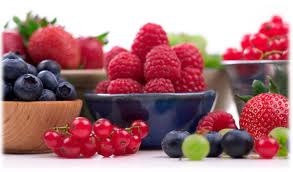
These berries are usually dark red or purple. They are good source of a compound called anthocyanosides. This compound helps in reducing the risk of vision loss and also improves night vision. Berries rich in antioxidants are an important source of nutrition for healthy eyes. By consuming a cup of blueberries or 100 mg bilberry supplements or a cup of huckleberry jam can improve dark adaptation in just about 30 minutes. A research also claims that consuming berries rich in flavanols can also improve focus, enhance clarity of vision and also make colors appear brighter. These tasty and tart berries can be eaten in the form of jelly or jam or in fresh form.
Eggs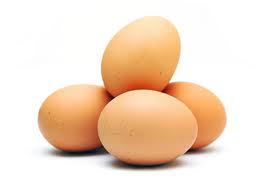
Egg yolks contain various essential proteins and are loaded with many nutrients. Apart for keeping you healthy overall, eggs are essential for healthy eyes too. Eggs are rich sources of lutein which is an essential fatty acid, zinc and B-vitamins. Eggs also contain high levels of sulfur, cysteine, lecithin and amino acids. Sulfur in eggs helps in reducing the risk of cataract formation in the lens of our eyes. All these nutrients are vital for good and a healthy vision. Eggs are defiantly a value addition for healthy eyes.
Carrots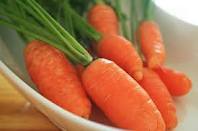
Carrots are extremely rich in Vitamin A. As children we all were taught that carrots are good for our eyes. About 500, 000 children throughout the world suffer from degenerating eyesight due to lack of beta-carotene and vitamin A. Beta carotene is that substance in our body that gets converted to vitamin A which helps in transferring fat into energy. Just half a cup of cooked carrot contains almost four times the daily recommended intake of vitamin A. Beta-carotene is a potent antioxidant which is also effective in fighting against various forms of cancers. Vitamin A is known to maintain the surface lining of our eyes and also the urinary, intestinal and respiratory tracks. When these linings break down or get thin due to any reason, bacteria can go through the body, causing infections. Thus, carrots are not just eye foods but are essential for many bodily functions. Vitamin A is also known for maintaining the integrity of mucous membranes and the skin which act as barrier to protect from viruses and bacteria. However, for the beta-carotene to be converted into vitamin A, the body also needs some amount of fat, adequate levels of iron and zinc under sanitary condition and clean water. All these factors must be available to absorb the carotene and to avoid it from getting flushed from our body without any positive effects.
Ostrich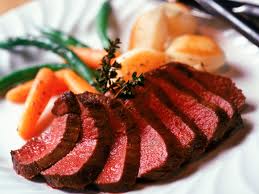
Ostrich is an extremely healthy, delicious and a lean substitute to any red or white meat, including pork, lamb, beef, chicken or even turkey. This lean meat is known to absorb you favorite seasonings and is also loaded with minerals like iron and zinc and high levels of proteins. These are some of the essential ingredients for healthy eyes. Zinc is a mineral found in the retina. It also helps in proper functioning of the enzymes which are responsible for healthy eyes. When zinc levels in the retina drop, people suffer from macular degeneration. Thus, logically consuming foods rich in zinc is the first step towards treating and preventing macular degeneration.
Sweet potatoes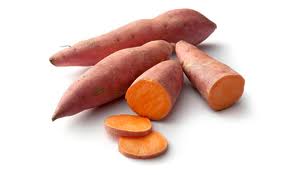
These bright orange sweet roots are a very good source of beta-carotene. Sweet potatoes are ideal for adding starch in your daily meals. Like carrots, sweet potatoes too are extremely rich in vitamin A, potassium, beta carotene and fiber. Sweet potatoes, due to their nutritional value are also considered good for the eyes and overall health. A 200 grams serving of cooked sweet potato contains 769 % of the daily vitamin A intake recommendation. They have a sweet flavor which makes them one of the favorite ingredients in a wholesome meal. They can be baked with a little oil or made tasty fries.
Turkey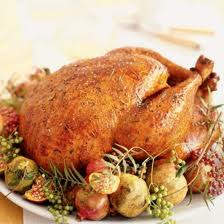
Turkey is a good source of zinc. This lean meat is also rich in B-vitamin niacin. B-vitamin niacin is specifically known to protect against cataracts. Also, turkey is amazingly versatile and is a wonderful lean substitute to other high fat beef or red meat. Zinc helps the body to absorb vitamin A and without zinc our body would not be able to get the dose of vitamin A it requires for healthy eyesight. Zinc also contains antioxidant properties which help other antioxidants to fighting oxidative damage. You can add turkey in sandwiches, salad, burgers, in chili and tacos. Niacin helps in creating new cells in your eyes and it also replaces the damaged ones, keeping your eyes functioning normally.
Nuts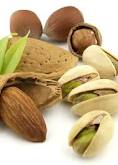
Nuts are nature’s most intense food sources. They are loaded with essential nutrients that the human body requires for its smooth functioning. It is said that the vitamin E completes the nutritional needs for healthy eyes and vision. Vitamin E is also known to prevent cataract and age related macular degeneration also known as AMD. Various nuts are rich in vitamin E. Nuts such as almonds, pistachios and hazelnuts are a good source of vitamin E. Pistachios contains beta-carotene, lutein, zeaxanthin and carotenoids which slows down AMD.




